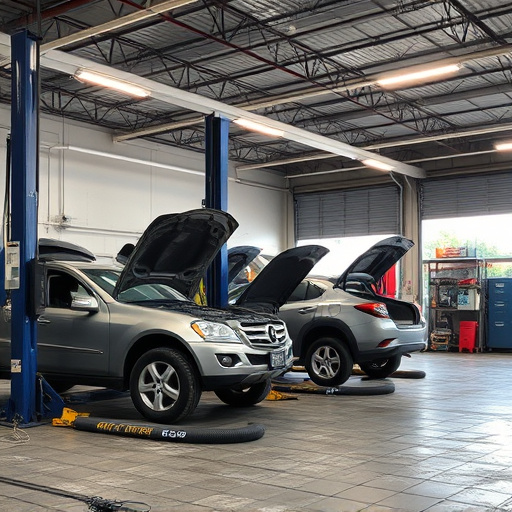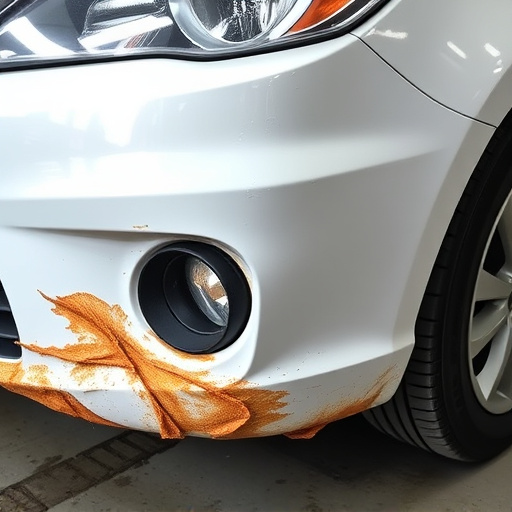Repair priority scheduling is a critical process for efficient vehicle repair management, prioritizing urgent and high-impact repairs while adhering to warranty compliance standards. This method ensures swift issue resolution, reduces vehicle downtime, maintains customer satisfaction, and fosters trust in auto repair shops, ultimately driving business growth through effective operation and quality service delivery.
In the dynamic landscape of customer service, efficient repair priority scheduling is paramount. This article delves into the intricacies of repair priority scheduling and its crucial role in warranty compliance. We explore fundamental concepts, starting with understanding the basics of repair priority. Subsequently, we scrutinize legal and ethical obligations tied to warranty compliance, offering insights into streamlined processes for effective management. By the end, businesses will be equipped to enhance customer satisfaction through optimized repair priority scheduling.
- Understanding Repair Priority Scheduling Basics
- Warranty Compliance: Legal and Ethical Obligations
- Streamlining Processes for Efficient Warranty Management
Understanding Repair Priority Scheduling Basics

Repair priority scheduling is a critical process that ensures efficient management of vehicle repair requests, especially in busy workshops or service centers. At its core, this system determines the order in which repairs are carried out based on their urgency and impact on customer satisfaction. The basics involve categorizing repairs into different priority levels—high, medium, and low—which is often done through a structured scoring system. This approach guarantees that more critical car damage repairs or auto body repairs, such as those affecting safety or causing significant vehicle disfigurement (like a prominent car dent), are addressed first.
By implementing repair priority scheduling, workshops can streamline their operations, ensuring that customers with the most pressing issues receive timely attention. This method also helps in managing resources effectively, preventing delays, and maintaining a high level of service quality. Moreover, it enables auto body repair technicians to prioritize tasks, minimizing wait times for clients and maximizing productivity.
Warranty Compliance: Legal and Ethical Obligations

Warranty compliance is a critical aspect of repair priority scheduling that involves adhering to legal and ethical obligations. When a vehicle experiences damage, whether from an accident or regular wear and tear, the subsequent repair process must follow specific guidelines to ensure consumer protection and maintain business integrity. Car bodywork services and car paint services are integral parts of this process, requiring skilled technicians to perform repairs accurately and according to manufacturer standards.
Reputable auto repair shops have a legal duty to provide quality workmanship and use only genuine or approved parts during vehicle collision repair. Failing to comply with these standards can result in legal repercussions, including fines and damage to the shop’s reputation. By prioritizing warranty compliance, repair facilities demonstrate their commitment to customer satisfaction and ensure long-term business success, fostering trust among clients who rely on them for reliable and safe car bodywork services and paint jobs.
Streamlining Processes for Efficient Warranty Management

In the realm of auto warranty compliance, efficient management is key to maintaining customer satisfaction and business success. Streamlining processes for repair priority scheduling allows for swift resolution of issues, ensuring that vehicles are back on the road promptly. By implementing structured systems, auto repair shops can effectively track warranty claims, prioritize tasks based on urgency, and minimize delays. This is particularly crucial in handling common services such as car dent repair and auto painting, where quick turnaround times are expected by customers.
A well-organized approach involves digitizing records, automating notifications, and assigning dedicated teams for warranty-related work. Such measures enable seamless communication between service centers, parts suppliers, and insurers, fostering a coordinated effort to meet warranty obligations. With these processes in place, auto repair shops can confidently handle an influx of requests, including those from customers seeking convenient options like auto repair near me, without compromising on the quality of their service or breaching warranty terms.
In conclusion, effectively managing repair priority scheduling and warranty compliance is paramount for businesses to maintain customer satisfaction and legal integrity. By understanding the basics of repair priority, recognizing the ethical implications of warranty obligations, and implementing streamlined processes, companies can enhance operational efficiency while ensuring a positive customer experience. Adopt best practices in repair priority scheduling to foster trust, mitigate risks, and optimize resource allocation.













